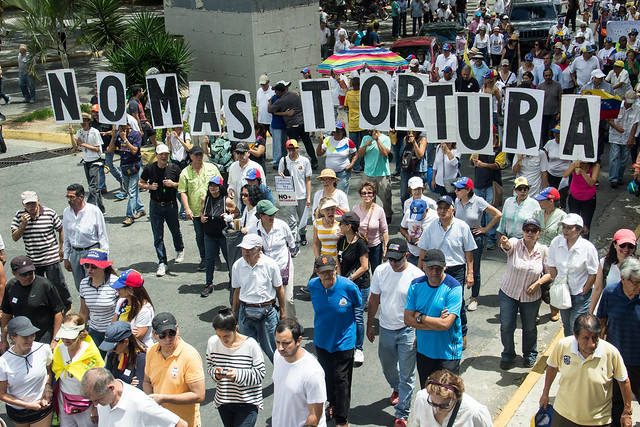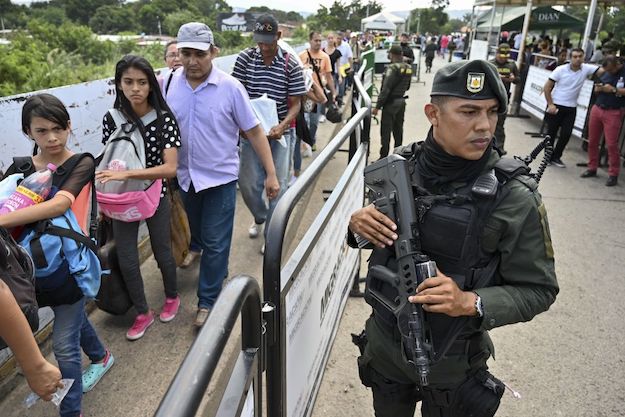United Nations High Commissioner for Human Rights, Michelle Bachelet, arrived on Wednesday 19 July to Venezuela for a 3-day visit. On Thursday afternoon, the High Commissioner, human rights organizations and multiple victim groups met. In this space of one hour, 26 spokesmen were able to make requests to the High Commissioner. 20 of these interventions are registered in this document, which represents an overview of the activists’ demands for the human dignity of the country in a context characterized by the lack of democracy, increase in poverty and forced migration.
Below is one of such interventions.
My name is Quiteria Franco, coordinator of Unión Afirmativa de Venezuela, an organization which works for LGBT people and the right of equality and non-discrimination. “In Venezuela we are all victims of discrimination, in some way or another since it originates in political preferences against the government or when expressing a critical position towards the government. Maduro’s response since 2012 has been the use of homosexuality to attack the political adversary.” Because of this discrimination, the spaces for our work as human rights defenders have been closed.
The contempt statement against the National Assembly has prevented our advocacy work to push through the laws we need such as a law against discrimination, equal marriage and legal identity to transsexual and intersexual people.
We have moved from these demands, already approved in most countries on the continent to documenting deficiencies in health, death of transsexual people by suicide or murder, and modern slavery situation including trans women trafficking, gay men and trans women’s forced prostitution and activists’ forced migration which has weakened human rights organizations over LGBT people. Venezuela ranks fourth in the Americas as the country where hate crimes against LGBT people most occur.
The government’s social policies to address scarcity and food shortages have been unfavorable to LGBTI people. For example, shops were required to install biometric equipment to scan the fingerprint and present the ID card. This affected transsexual people because of the inconsistency between their identity document and their physical appearance. The second social policy is the clap bag, a bag containing commodities. Prior to the sale of the bag the communal councils carry out a census, same-sex couples are not registered for not being considered a family.
We need all this tragedy we live in to stop because every day that passes is worse. And minority and vulnerable groups like LGBT people are having a bad time twice and three times worse than most and that is a lot to say.




